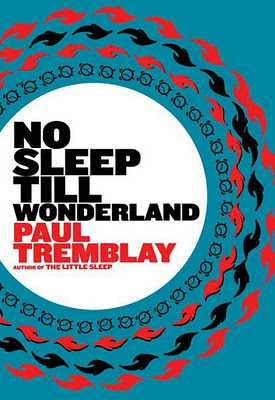The only e-book device I have other than my laptop is an iPod Touch, and neither the laptop nor the iPod is anything I want to read an entire book on (reading on the iPod is only slightly more comfortable than reading the The Compact OED
Anyway, as a public service announcement, here are some recent e-book announcements that piqued my interest:
Minister Faust's new novel, The Alchemists of Kush, is now available for $2.99, and it broke the Amazon Top 1,000 on its first day, which moves it closer to reaching the goal of breaking the Top 100, at which time Minister Faust will donate $500 to send textbooks to university students in South Sudan. For more info, check out this interview of Mr. Faust by Jeff VanderMeer.
Speaking of Jeff VanderMeer, he and his wife Ann were worried that they were spending too much time lounging around and staring at iguanas (or whatever fauna they have down there in Tallahassee), so they decided to get off their butts and be productive for once (since writing novels and stories, editing anthologies, running Weird Tales magazine, going to conferences, and teaching writing workshops just don't really take up enough hours in the day) and so they have started Cheeky Frawg, an e-book publisher. Jeff just announced the first set of titles today, and it's pretty amazing -- eclectic, international, and downright odd.
Speaking of eclecticism and anthologies, Ellen Datlow just listed which of her books are available in the format of e. Anthologies seem to me ideal for ebooking, and while I do love my shelves (literally) of Datlowian goodness, imagine what a wonderful resource it would be to have them all available at the fingertips... (With appropriate royalties, as well.)
Speaking of royalties, James Patrick Kelly is the king of all things electronic (you should see the Christmas lights he's strung on his Hugo Awards!), and now he's launching an e-book magazine of his own work, with a couple of stories and some nonfiction and other goodness for 99 cents a pop. Check out his website for more info. The first issue contains one of my all-time favorite JPK stories, "The Propagation of Light in a Vacuum", which is the tale of a man who discovers an extraordinary new way to vacuum the dust off of Hugo Awards when they're covered with Christmas lights. (Egads, I forgot a spoiler alert! Sorry!)
Speaking of Christmas, if I had an ebook reader it would feel like Christmas because I'd be buying lots of things from Weightless Books, which is run by famous Santa J. Claus impersonators Gavin J. Grant and Michael J. Deluca. They offer not just Cheeky Frawg books (see, too, the chance to win a book-book [b-book?] copy of the limited edition Secret Lives), but also books from Apex Book Company (get Nick Mamatas's Starve Better for only $3.99 -- it's a great manual for how to make enough money from writing to get some decorations for your hovel! The key insight is that you should write like that pretentious, overrated, plot-hating
Speaking of abject poverty, the British pound is worth 1.62 U.S. dollars at the moment, which means if you American readers convert all of the dollars you've stuffed under your mattress into pounds, you'll have more space under your mattress and you'll be able to buy e-books from the great Wizard's Tower Press, where you can get e-book versions of novels, anthologies, and magazines published by such good presses as Aqueduct and Prime and Lethe. You already have seventeen copies of the b-book of Genevieve Valentine's first novel, Mechanique, but because you've preserved them all in a vault to keep as collector's items that will make your ancestors independently wealthy, so it's important that you buy the e-book to be able to read the most-talked-about (in my head) book of the season! I haven't read it yet, either, because I haven't had time to read anything except stuff for work for months, but Genevieve rocks, so how could it not be great? And if you're not British, buying stuff in pounds will help you feel cosmopolitan, so you really should do it. And if you are British, you should do it, too, because you can feel like you're lording it over your poor American cousins.
And now we have come to the end of today's public service publicity announcement. I'm heading off to decorate my hovel...

